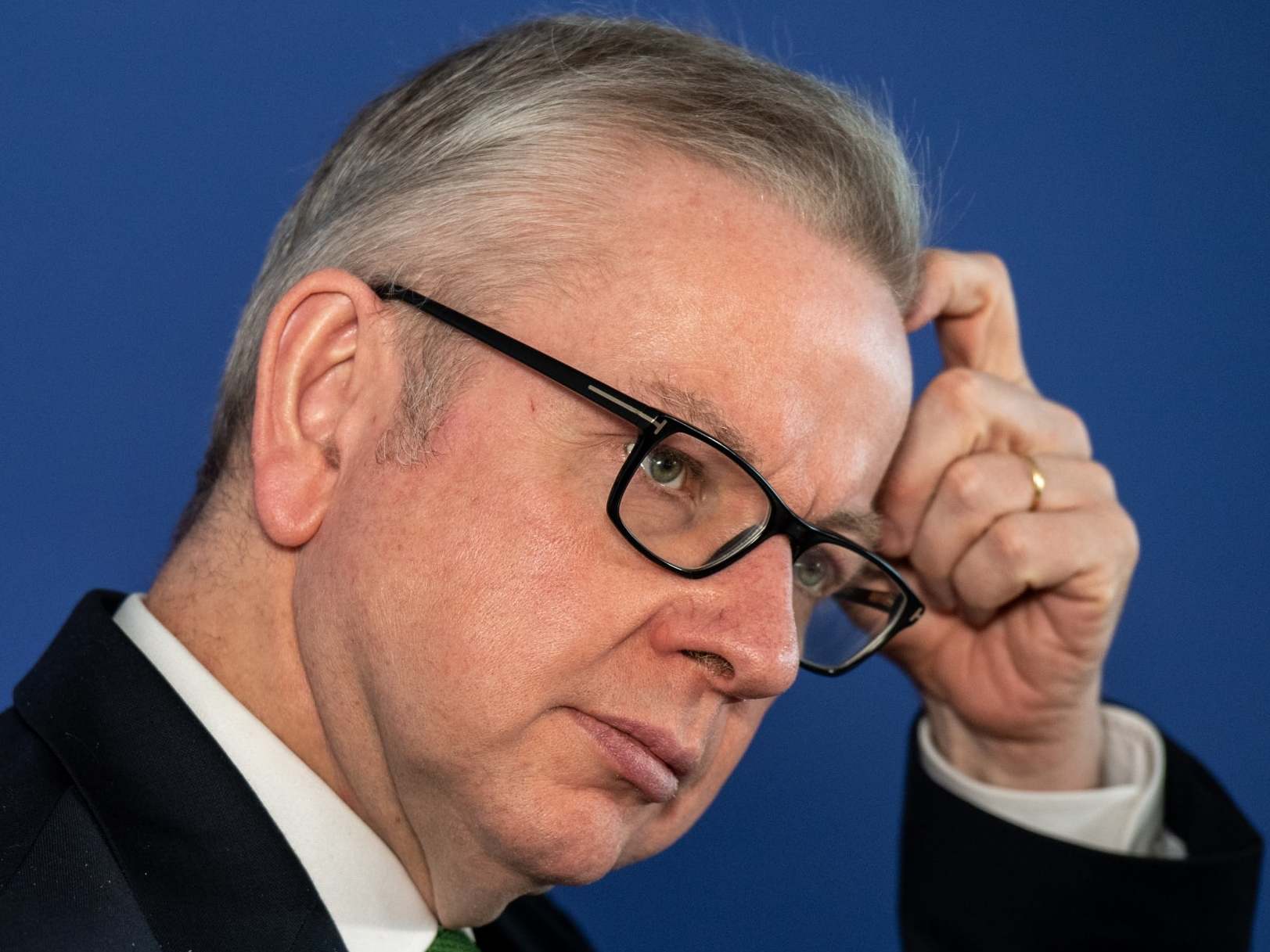EU has had to ‘set aside principles’ during coronavirus outbreak, claims Michael Gove
Cabinet minister promises legal text for EU free trade agreement in ‘matter of weeks’

The European Union has “set aside” some of its principles during the coronavirus outbreak, Michael Gove has claimed.
The cabinet minister, a leading Brexiteer, told MPs on the Commons Brexit committee that “restrictions on border movements and on economic interventions” were exceptional measures that Brussels would not normally “countenance”.
Mr Gove also predicted that the odds of success in securing a trade deal with the EU were “definitely better than two to one” – despite warnings about a lack of progress last week by EU chief negotiator Michel Barnier.
He told the committee that the UK would be making public its legal text for a proposed free trade agreement in “a matter of weeks”. It has already sent a version to EU negotiators, but has not made it public. The EU has made its proposed text public.
Asked why the UK didn’t publish its text at the same time as the EU, Mr Gove said the bloc’s version would have been leaked anyway because of its contact with diplomats and that the commission was simply making “a virtue out of a necessity”.
“We wanted to make sure that the commission had time and space to look at our proposals,” he said of the UK’s own reticence to publish.
Addressing his claims that the EU had bent its principles for Covid-19, Mr Gove said: “One of the reasons why we want to be outside the legal architecture of the European Union at the end of the transition period is so we can have the maximum flexibility when it comes to state aid, government procurement, and to other steps that we may need to strengthen our economy.
“We’ve seen the way that during the Covid-19 crisis some of the principles of the European Union have been set aside very prudently by the EU to enable member states to take the appropriate steps required, and we have seen both on restrictions of border movements and also on economic interventions actions by individual member states, national governments, which in ordinary time the EU would have found difficult to countenance.”
In fact, the EU’s Schengen treaty that abolishes border controls already contains provisions for temporary border controls in the name of public health or national security. They were previously used on a widespread basis as recently as the refugee crisis.
The European Commission announced a relaxation of state aid rules at the start of the crisis, and president Ursula von der Leyen said last week that it had so far approved €1.8 trillion (£1.5 trillion) in national aid to companies.
Stalled Brexit talks resumed last week over videoconference, but made little progress.
Both sides suggested that the four main sticking points were the extent to which the UK would stay aligned to EU rules or the “level playing field”; continued UK observance of the European Convention on Human Rights; fisheries access for EU fleets; and the governance of the deal – notably whether it would be several multiple deal or one big agreement.
Mr Gove also revealed to the committee that a “significant number” of officials working on Brexit have been moved onto tackling the coronavirus outbreak.
Initially saying “just shy of 100” civil servants being sent to work on Covid-19, the senior minister later corrected the figure to 47 Whitehall officials being moved.
But he insisted that the timetable was not in doubt, adding: “Taskforce Europe and the Transition Taskforce [the teams working on Brexit] have had some of their top people redeployed to Covid-19 but at the same time, the teams have had all the help they need from departmental specialists in areas like fisheries and trade to ensure that their work can continue.”
Asked about progress in talks, Boris Johnson’s official spokesperson told a briefing of reporters in Westminster: “We’re ready to keep talking but that doesn’t make us any more likely to agree the EU’s proposals in areas where they are not taking into account the UK’s status as an independent state.
“All we are seeking is an agreement based on precedent which respects the sovereignty of both sides. Clearly there will need to be political movement on the EU side to move negotiations forward, particularly on fisheries and level playing field issues, in order to help find a balanced solution which reflects the political realities on both sides.”
The spokesman added: “What the EU is seeking to do is impose conditions upon us which are not required in other FTAs which it has agreed with sovereign countries around the world.”
Asked whether the UK has yet submitted its position on fisheries, the spokesman said: “We are not going to put anything on the table just for the sake of it. We need the EU to understand our position, which is that we will be a sovereign state which has control of its own fishing waters. Our position was set out in the document which we published two months or so ago in relation to what we are seeking from the future partnership.”
Join our commenting forum
Join thought-provoking conversations, follow other Independent readers and see their replies
Comments
Bookmark popover
Removed from bookmarks